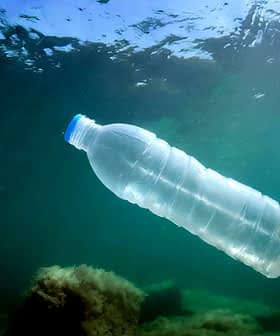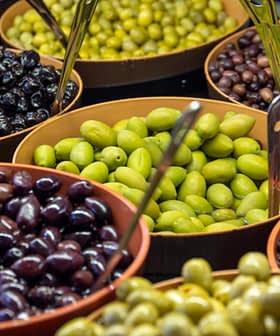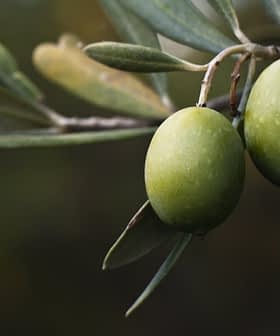Using Resins to Debitter Olives May Be Eco-Friendly Alternative
Amberlite resins present a possible environmentally-friendly solution to removing bitterness from olives, reducing wastewater and chemicals used in commercially-employed methods.
Researchers from the University of California, Davis have discovered a more environmentally-friendly way to remove bitterness from olives, reducing toxins and wastewater associated with commercial processing methods. By experimenting with four Amberlite resins, they found a method that effectively removes bitterness from olives without the need for additional processing, preserving the phenolic compounds for other uses and addressing the high water use and toxic wastewater generated by traditional olive processing methods.
Researchers have found a way to remove the bitterness from olives in a more environmentally-friendly way than commercially-favored methods, reducing toxins and wastewater.
Olives contain phenolic compounds that create a bitter flavor when they are fresh, and the compounds are often neutralized with chemicals and repeated rinses, according to the paper, “Reducing phenolics related to bitterness in table olives” by researchers Rebecca L. Johnson and Alyson E. Mitchell from the University of California, Davis. The paper was published in the Journal of Food Quality in August 2018.
Preliminary results demonstrate that all resins could remove oleuropein during brine treatments thereby significantly reducing olive bitterness without the need for additional processing.
“Current commercial table olive processing methods remove many of these bitter phenolic compounds and as a result, can alter the health-promoting potential of various table olive products,” the researchers wrote. “Additionally, current commercial table olive processing methods are some of the most water-intensive methods used in commercial food processing and can require more than 7,571 liters of water per ton of olives (e.g., California and Spanish methods) and generate highly toxic wastewater.”
The researchers wrote that their group experimented with four Amberlite resins and found that they not only removed the bitterness but saved the compounds for other uses rather than destroying them.
See Also:New Project Turns Olive Oil Byproducts Into Revenue Stream“Preliminary results demonstrate that all resins could remove oleuropein during brine treatments thereby significantly reducing olive bitterness without the need for additional processing,” Johnson and Mitchell wrote.
Oleuropeins are only one phenolic compound contained in olives, though they are the most common during harvest time, Johnson and Mitchell added.
There are three primary methods used by commercial olive processors: Greek, Spanish and California. Johnson and Mitchell noted there are less popular artesian means to debitter the olives, but added that they are not ideal for commercial use. The Greek style uses a smaller amount of water to the Spanish and California ones do, though each has its pros and cons. The California process uses the most water, according to the authors.
The problem with wastewater from processing table olives has been noted before. In July 2018, Bárbara Rincón-Llorente, David de la Lama-Calvente, María J Fernández-Rodríguez, and Rafael Borja-Padilla wrote, “Table Olive Wastewater: Problem, Treatments and Future Strategy. A Review” published in Front Microbiol.
“At present, there is no standard treatment for these wastewaters with acceptable results and which is applied in the industry,” they wrote. “Currently, the most common treatment is the storage of these wastewaters in large evaporation ponds where, during the dry season, the wastewater disappears due to evaporation. This is not a solution as the evaporation ponds depend completely upon the climatology and have a high number of associated problems, such as bad odors, insect proliferation and the contamination of underground aquifers.”
In fact, olives are one of the worst foods as far as water use in the industry.
“Olive processing is one of the most water-intensive fruit or vegetable processing methods,” Johnson and Mitchell wrote. “The wastewater that is produced is a dark effluent with high organic burden and polyphenol content that exhibits antibacterial properties. Releasing effluent streams directing into local water systems or on land can result in toxicological consequences and environmental contamination.”
The water is generally sent to evaporation ponds, which Johnson and Mitchell note has several problems similar to those noted in the earlier article published in Front Microbiol.
In both articles, the researchers noted the critical issue of producing large amounts of wastewater, particularly in regions that are already experiencing drought.
The problem has been compounded by higher demand for olives and olive oil.
“The consumption of table olives increased globally by 182 percent, and olive oil consumption increased by 76 percent between 1990 and 2016,” Johnson and Mitchell wrote. “This increase is attributed to the popularity of the Mediterranean diet, which is linked to reducing cardiovascular disease, Alzheimer’s disease and other age-related conditions.”
Johnson and Mitchell listed several different potential methods of debittering olives, noting that researchers have looked into using oxygen overpressure, carbon dioxide overpressure and more. The resin method both debittered the olives and preserved the phenolics for future use.
The authors recognized the importance of local and time-honored methods but felt the need to look for less wasteful ways to enjoy olives.
“Table olives are a popular food product consumed worldwide,” Johnson and Mitchell wrote. “While traditional and region-specific olive processing methods should be celebrated, there is the opportunity to develop new technologies for debittering olives, that will enable the creation of novel products with new textures, flavors and health-promoting properties that will appeal to contemporary consumers and expand markets. Novel technologies can also reduce water and labor costs and increase environmental sustainability.”









